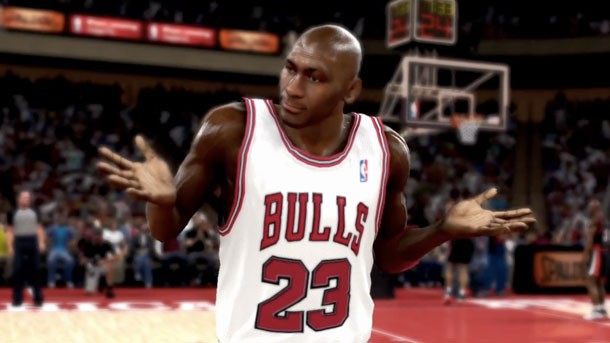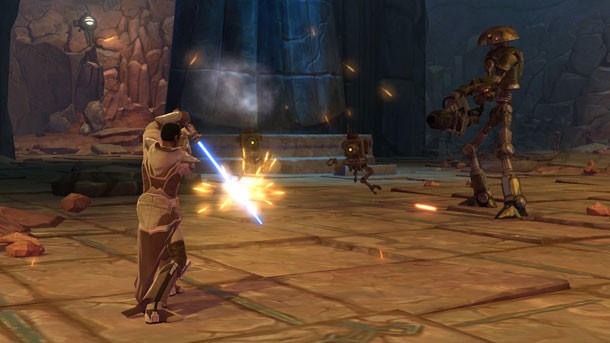Please support Game Informer. Print magazine subscriptions are less than $2 per issue
Expiration Date: Will Modern Video Games Go Bad?

We often think of video games as a timeless medium. Players with a love for retro gaming can still dust off an NES, blow in the bottom of a Super Mario Bros. cartridge, and experience the game the way it was played 25 years ago. Over the past few years, the video game industry has undergone an online revolution, opening up exciting new avenues for interaction and distribution. At the same time, these changes have introduced some troubling restrictions that impact the longevity of the games you buy. The day you can’t play your favorite modern game may be coming sooner than you think.
This article originally appeared in issue 227 of Game Informer.

The Authentic(ated) Experience
Anyone who’s played a game in the past two years is aware of a pack-in many games come equipped with nowadays: The online pass code. Whether you’re unlocking a frivolous new costume, a handful of bonus maps, or the game’s entire multiplayer component, some part of your new experience is likely tied to authenticating your copy via some online service. Gamers without Internet access have suffered without this bonus content for some time now, but even for online gamers these extras will be available only for as long as Microsoft and Sony provide service for their systems. Once that is gone, that content (if it’s not already loaded on your console) will be gone forever. We won’t cry if that means losing access to our horse armor in Oblivion a few years from now, but some missing content will prove more detrimental to the overall experience. Late last year, Rocksteady was criticized for locking the Catwoman chapters of Batman: Arkham City, which intertwine with the Caped Crusader’s own narrative, behind a hefty DLC download. Ultimately, players who buy the game new and have access to the Internet don’t think much about the inconvenience of downloading the extra content. But once Xbox Live and PSN support are no longer offered for the 360 and PS3, a piece of Arkham City’s adventure will be permanently lost.

When The Servers Are Severed
Gamers tend to think of multiplayer-oriented games as offering endless replayability, but due to the costs associated with maintaining servers for online play, multiplayer is oftentimes the first aspect of a game to get the axe. Late last year, BioWare launched its highly anticipated MMO The Old Republic, offering players the chance to explore a new take on the Star Wars universe. Five days earlier, however, another MMO based on the hit sci-fi IP, Star Wars Galaxies, shut off its servers. For eight years the game offered a home to a dedicated group of players, which may sound like a long time. But the ending of Star Wars Galaxies is absolute – players no longer have the ability to go back to the game for a stroll down memory lane or to catch up with friends. The doors are closed.
Social games aren’t impervious to getting the axe, either. Late last year, EA PopCap announced its plans to shut down the Facebook game Baking Life at the end of January, despite an average daily player count of 100,000 users. Adding insult to injury, the game’s developer announced that any outstanding virtual currency (Zip Cash) players have cannot be refunded or transferred to the company’s other titles.
It’s not just PC players who must worry about having the plug pulled on their favorite online game. Console games featuring dedicated server-based multiplayer are just as susceptible to being rendered unplayable by discontinued support, which sometimes comes sooner than you think. Last year, 2K Sports shut down NBA 2K11’s multiplayer servers in mid-November, after just 13 months of support. Players were encouraged to “upgrade” to NBA 2K12, but the newest iteration in the series doesn’t have My Crew or the traditional Online Leagues, leaving fans of those modes high and dry.
The multiplayer servers for Demon’s Souls have been on the chopping block several times as well. Originally Atlus planned to discontinue the multiplayer servers in March of 2011, but the shut-off date was then delayed until fall of the same year. Fans are now riding another stay of execution until an unnamed time in 2012, but sooner or later a facet of Demon’s Souls’ innovative blend of multiplayer and single-player will be gone for good.

Patch Now, Cry Later
The past few years have introduced console owners to a necessary evil long known by PC gamers: post-release patches. It’s now commonplace for console games to require multiple updates after release, many of which are mandatory if you want to continue playing online. The practice of patching a game is usually a good thing; thanks to online updates, developers can fix pesky oversights, whether that be an annoying glitch, UI tweak, or a game-ending bug.
Modern games have no shortage of game-breaking bugs. Whether the ability to provide post-release support has made developers more willing to release games before they’re fully tested is a question without an easy answer, but one thing is certain: Title updates, like all digital content, will only be around as long as the publisher or console manufacturer supports them. Not only will gamers without Internet access never be able to use post-release patches – which have become increasingly common in the past few years – those who haven’t downloaded the updates will lose their ability to do so once those services are down. Those gamers will be playing the game in all of its original, buggy glory. One only has to look at the rocky launch of Skyrim to understand how unpleasant a prospect that may be.
For collectors, game of the year editions provide an offline option, as many feature DLC packs and the latest patches on the disc – but a game must be popular enough to warrant a re-release in the first place.

Vanishing Act
Perhaps the most exciting aspect of the current generation of consoles has been the advent of downloadable content. Services like Xbox Live and PlayStation Network give developers a downloadable alternative to the rigid $60 pricing structure of retail games, as well as the ability to extend game experiences via DLC packs. However, the convenience of trading in a physical medium for one that can be downloaded into your living room comes at the uncertainty of what will happen to your purchases in the future. What, for example, will happen to all of the downloadable games you’ve purchased on your current console? How long will you be able to re-download a game or DLC pack you’ve erased from your hard drive?
Any gamer who has had to replace an Xbox 360 has likely run into another stumbling block in the form of Microsoft’s DRM protection, which requires an Internet connection to authenticate an XBLA game if it’s not being played on the original system. If you’re not online, those purchases will automatically revert to trial copies until they can connect to Microsoft’s servers. Microsoft offers owners a tool to transfer the licenses of DLGs to a new system on its website, but if your 360 is connected to the Internet all the time, it’s an easy problem to overlook – one that won’t become evident until Microsoft has already ceased supporting the 360’s Xbox Live services, at which point you may lose your ability to authenticate DLGs on your replacement 360.
However, not everyone is looking at the future of digital games with trepidation. 5th Cell’s creative director Jeremiah Slaczka has been a fervent advocate of digital distribution, and sees great possibilities in how the medium can help preserve games, making the need to keep around old consoles obsolete. “Do you watch your old VHS tapes on your old VCR, or do you simply stream those classics from Netflix?” he asks. “Sure, you could pull out and dust off your VCR from your closet, plug it in, and pop Back to the Future in, but why would you want to if you have a digital library of nearly infinite content?”
Slaczka believes we’re already seeing the same transition for video games. “We’re seeing most older games go digital, now. People want them on other platforms, the technology is readily available, a new market developed, and now you can play all the console classics right on your handheld device. I think this is great because, before digital distribution, it was very difficult to introduce these titles to the general public. This is going to happen to digital-only games as well. It’s just that those games are so new right now, no one has had the need to port them anywhere.”

An Unknown Future
Ultimately, gamers won’t know what kind of continued support downloadable content will receive until the hardware manufactures announce their plans for the next generation of systems. Although they may face public pressure, Sony and Microsoft are under no legal obligation to continue supporting this generation’s vast array of servers, patches, and downloadable games and content, or to offer any kind of software compatibility on future systems. Considering that this is the first generation of hardware to offer many of these advances, we are in uncharted territory.
We talked to a Microsoft spokesman about the company’s plans for future support of the Xbox 360’s software library, and his answers were predictably vague. However, he did tell us that Microsoft views Xbox Live accounts, gamertags, and avatars as a digital identity that is not dependent on hardware, citing Windows and iPhone support as an example of the company branching out. Does this mean that Xbox Live Arcade could one day become a multiplatform service, similar to Steam? Microsoft wouldn’t say, but stated that it is “always looking at ways to make [XBLA] games as broadly accessible as possible.”
Even if your downloadable content doesn’t carry over to your next system, it likely won’t disappear the day the next Xbox or PlayStation is released. According to Wedbush Securities analyst Michael Pachter, Microsoft and Sony are likely to offer gamers an extended grace period on content they’ve purchased online. “I think that downloadable games is the smallest part in determining whether to support online for legacy systems,” Pachter told us. “The Call of Duty multiplayer community is likely to remain quite large for at least a couple of years post launch of the next-gen systems, so Microsoft and Sony are highly likely to continue legacy online support for at least two years. I think next-gen systems are coming out in 2014, so support through 2016 for downloadable games should be sufficient for most people.”
Whether that will be a long enough window to satisfy gamers remains to be seen, but one thing is certain: Neither Microsoft nor Sony will maintain previous hardware and software indefinitely, and unlike the shoebox of old cartridges you may have sitting in your closet, much of the online content and support that modern games rely on can’t be stored away forever. The best advice we can offer players is to enjoy your games while you still can.










